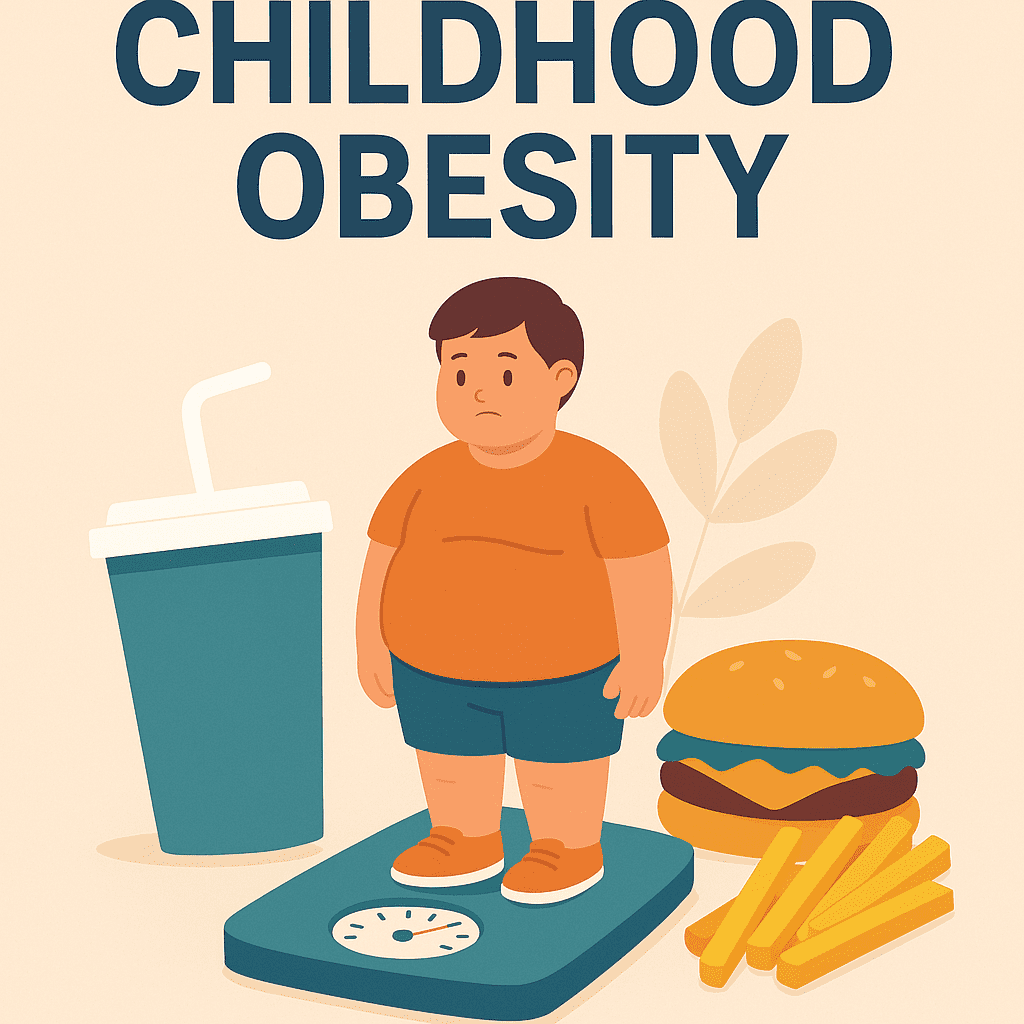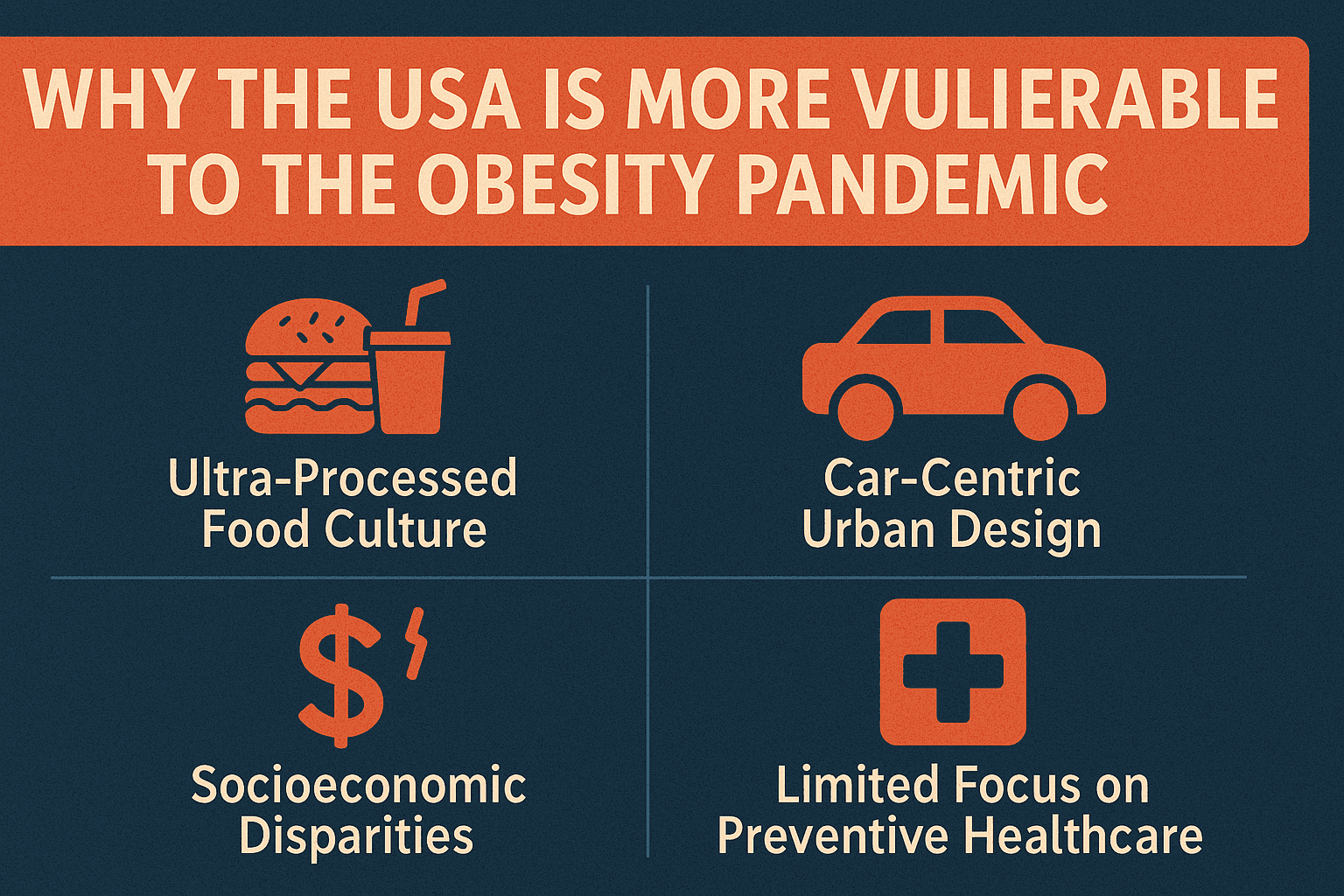Childhood obesity is a growing global health crisis, with rates tripling in the last three decades. As modern lifestyles become more sedentary and processed foods dominate diets, parents face an uphill battle in keeping their kids healthy. But the good news? Small, consistent changes in parenting approaches—like managing screen time and encouraging physical activity—can make a huge difference.
This blog explores practical, science-backed strategies to help your child maintain a healthy weight while fostering lifelong wellness habits.
Why Childhood Obesity Matters
Before diving into solutions, let’s understand the real impact of childhood obesity:
- 🚨 Higher risk of Type 2 diabetes, heart disease, and joint problems.
- 😟 Emotional toll—kids may face bullying, low self-esteem, and depression.
- 🔄 Long-term struggle—obese children are more likely to become obese adults.
The root causes? A mix of genetics, diet, inactivity, and environmental factors—but parents can influence most of these!
Modern Parenting Strategies to Combat Childhood Obesity
1. Rethink Screen Time: More Play, Less Scroll
📱 The Problem: Kids spend 7+ hours daily on screens (TV, phones, tablets), replacing active play.
✅ The Fix:
- Set limits: Follow AAP guidelines—no screens for kids under 2, max 1 hour/day for ages 2-5, and consistent limits for older kids.
- Screen-free zones: Keep meals and bedrooms device-free.
- Swap passive scrolling for active screen time (e.g., dance videos, fitness games).
2. Make Movement Fun (Not a Chore!)
🏃 The Problem: Only 1 in 3 kids gets enough daily physical activity.
✅ The Fix:
- Family activities: Bike rides, hiking, or backyard soccer.
- Gamify exercise: Use step counters, obstacle courses, or dance-offs.
- Encourage sports: Let kids try different activities to find what they love.
3. Upgrade Nutrition Without the Food Battles
🍎 The Problem: Ultra-processed snacks and sugary drinks dominate kids’ diets.
✅ The Fix:
- Involve kids in cooking—they’re more likely to eat what they help prepare.
- Healthy swaps:
- Instead of chips → air-popped popcorn or veggie sticks.
- Instead of soda → infused water or homemade smoothies.
- Avoid labeling foods as “good” or “bad”—focus on balance, not restriction.
4. Prioritize Sleep (Yes, It Matters!)
😴 The Problem: Sleep-deprived kids have higher obesity risks due to hormonal imbalances.
✅ The Fix:
- Set consistent bedtimes (even on weekends).
- No screens 1 hour before bed (blue light disrupts sleep).
- Create a calming bedtime routine (reading, quiet music).
5. Be a Role Model (Kids Copy What They See!)
👨👩👧👦 The Problem: If parents are inactive or eat poorly, kids likely will too.
✅ The Fix:
- Show, don’t just tell—exercise together, choose healthy snacks.
- Positive reinforcement: Praise effort (“You ran so fast!”) over appearance.
- Family wellness challenges: “Let’s all try 10,000 steps a day this week!”
Success Story: How One Family Made Small Changes, Big Impact
The Martinez family noticed their 8-year-old, Jake, was gaining weight and always glued to his tablet. Instead of drastic changes, they:
✔ Introduced “Screen-Free Sundays” → More park visits and bike rides.
✔ Swapped sugary cereals for protein-rich breakfasts → Better energy at school.
✔ Made dinner prep a family activity → Jake loved making (and eating!) veggie wraps.
Result? Jake lost excess weight naturally—and the whole family felt healthier!
Final Thoughts: Small Steps, Lifelong Health
Childhood obesity isn’t about quick fixes—it’s about creating sustainable habits. By balancing screen time, encouraging fun movement, and modeling healthy choices, parents can set their kids up for a healthier, happier future.
💬 What’s your biggest struggle with keeping kids active and eating well? Share in the comments!
Key Takeaways:
✅ Limit screens—replace passive time with active play.
✅ Make exercise fun—family activities > forced workouts.
✅ Healthy eating starts at home—involve kids in meal prep.
✅ Sleep is crucial—set consistent bedtimes.
✅ Lead by example—kids mimic what they see!
By adopting these modern, balanced parenting strategies, you can help your child grow up strong, confident, and healthy. 🌟



